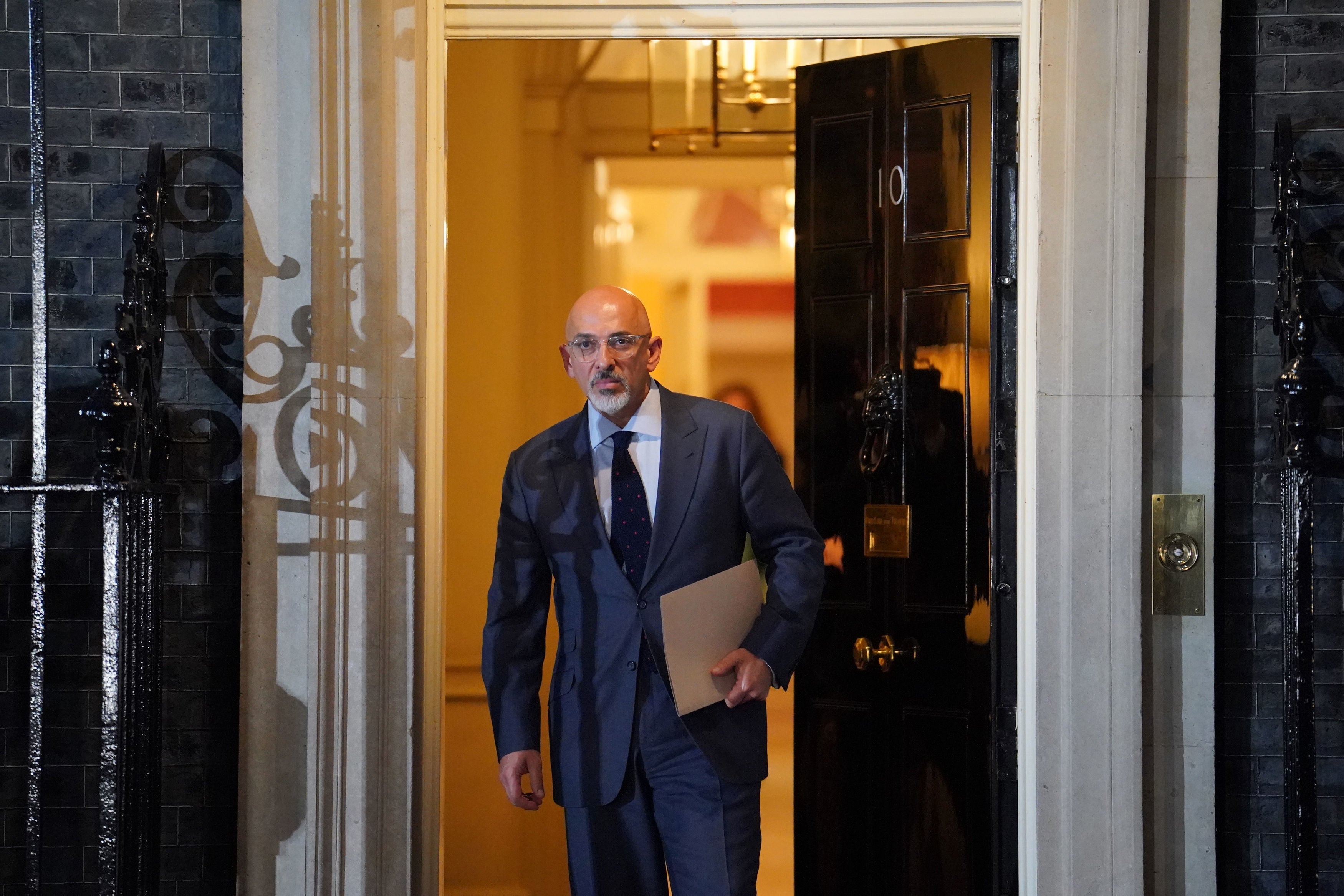‘Recipe for disaster’: New chancellor Nadhim Zahawi’s plan to cut taxes will make inflation worse, experts warn
Zahawi cannot deliver £21bn tax-cut plan while balancing the books and containing rampant price rises, say economists


Tax cuts planned by the new chancellor Nadhim Zahawi are a “recipe for disaster” that risk stoking more price rises and pushing inflation even higher while failing to boost the UK’s crumbling economy, experts have warned.
Mr Zahawi, who was thrust into the second-most senior role in government last night after Rishi Sunak’s shock resignation, signalled his commitment to slash taxes on workers’ wages and company profits while also being “fiscally responsible” and reviving the economy.
A flurry of television interviews on Wednesday morning has been mockingly dubbed “the most expensive media round in history” after the chancellor-backed tax cuts which experts say would cost an estimated £21bn a year.
“The important thing is to get inflation under control, be fiscally responsible,” Mr Zahawi told Sky News, adding: “The most important thing is to rebuild the economy post-pandemic and to get growth going again – and tax cuts.”
Economists said it was not possible to deliver on all of these aims, and that the chancellor needed to loosen the Treasury’s purse strings.
The government is understood to be looking to cancel a planned increase in the corporation tax rate from 19 per cent – one of the lowest rates in the developed world – to 25 per cent, in April next year.
George Dibb, head of the social justice unit at the Institute for Public Policy Research (IPPR), said that Mr Zahawi’s rhetoric was a clear departure from that of his predecessor who resigned in part over differences with Boris Johnson over government spending.
“Cutting corporation tax fundamentally will not work,” Mr Dibb said. “We have been in a catastrophic race to the bottom on corporation tax, ever since Gordon Brown was chancellor, yet the UK remains at the bottom of the league table for private sector investment.”
Boosting the UK’s historically low levels of investment will be a “very tough” job, Mr Dibb said.
“Zahawi is walking a tightrope, trying to increase investment without pushing up inflation. But that is not what cutting corporation tax and income tax will do. The former won’t boost investment and the latter could be inflationary.
He compared Mr Zahawi’s claims to those made by Harold Wilson in the 1960s: “He is trying to do two opposing things – to inflate and deflate at the same time. It was a recipe for disaster for Harold Wilson and it could be the same for Nadhim Zahawi.
Bank of England policymakers, who are trying to take the heat out of Britain’s economy by hiking interest rates, will be “tearing their hair out”, Mr Dibb said.
“It is possible to increase growth without pushing up inflation, if we promote green investment that decouples our economy from fossil fuels.”
He added: “We have had years without any industrial strategy. Business groups like the [Confederation of British Industry] CBI are united on this: we need a coordinated approach from government, not just more of the same with tax cuts on business.”
Lukasz Krebel, an economist at the New Economics Foundation (NEF) said it was key that the new chancellor does not repeat past policy mistakes and follow the “misguided dogmas of a ‘small state’ and ‘fiscal responsibility’.”
Mr Zahawi indicated on Wednesday that the government needed to be “really careful” to ensure that pay rises for public sector workers did not fuel inflation.
But Mr Krebel questioned that interpretation, given that millions of public sector workers face real-terms pay cuts this year.
“To boost growth, the chancellor needs to support the spending power of those on lower incomes being squeezed by high inflation coming after over a decade of wage stagnation and deep cuts to the social security system,” he said.
Independent economist Julian Jessop supported tax cuts and argued they will have only a marginal impact on inflation, if any. But he also questioned the chancellor’s commitment to balanced budgets in the short-term and said fears about the government’s overall debt burden were exaggerated.
“It would be no bad thing if we did end up with looser fiscal policy and tighter monetary policy,” Mr Jessop said.
“Most economists agree that the UK has got this mix wrong. A shift in the balance here should support sterling too, which would help with inflation as well.”
Still, the new chancellor will face calls from the right of his party to press ahead with tax cuts while reining in spending.
Sam Collins, a senior policy adviser at free-market think tank the Institute of Economic Affairs (IEA), called on Mr Zahawi to rebuff “profligate” spending demands from his neighbour in No 10.
New spending pledges or “unfunded” tax cuts would be extremely risky, he warned.
“It is therefore positive that he recognises that his main ambitions must be to reduce the tax burden on British families and keeping the government books in balance.”






Join our commenting forum
Join thought-provoking conversations, follow other Independent readers and see their replies
Comments